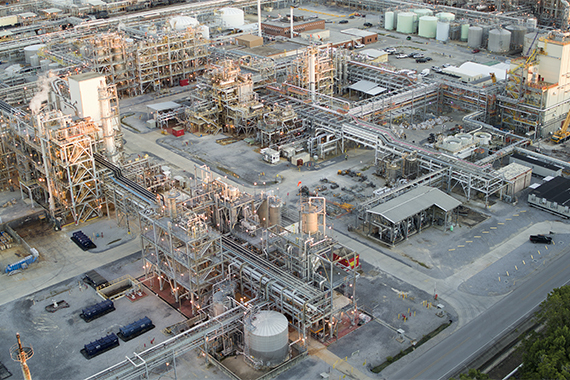More news
- Asian paint regulatory round up – Indonesian exterior paint still uses lead, warns W...
- Nigeria’s paint industry navigates regulatory changes and economic challenges amid p...
- Focus on the global coatings market: Global coatings market outlook
- Ask Joe Powder – October 2024
- Chinese paint majors look to domestic consumer sales as commercial real estate slumps

BASF has broken ground on the third and final phase of the methylene diphenyl diisocyanate (MDI) expansion project at its Verbund site in Geismar, Louisiana, announced in July 2022. The company will increase production capacity to approximately 600,000 metric tons per year by the middle of the decade to support the ongoing growth of its North American MDI customers.
The investment for this final expansion phase, which takes place from 2022 to 2025, amounts to US$780M. Including the first and second phases, the investment volume totals around US$1bn, making the MDI expansion project BASF’s largest wholly owned investment in North America.
"BASF already ranks among the largest and most forward-looking chemical companies in the United States,” said Michael Heinz, Chairman and Chief Executive Officer, BASF Corporation. "Through this investment, we demonstrate our commitment to meeting the needs of our customers while strengthening our foundation for continued growth in the important U.S. market.”
BASF welcomed Clay Schexnayder, Speaker of the House for the Louisiana State Legislature for a ceremonial ‘tilling-of-the soil’ to officially mark the groundbreaking of the final phase of the expansion.
"We are committed to continuing the success story together with our North American MDI customers,” said Stefan Doerr, Senior Vice President, Monomers North America. "BASF is investing to support our customers in various industries with significant growth potential in MDI applications, including transportation, automotive, footwear and furniture.”
Kicked off in 2018, the expansion project follows a staggered approach. First, a new MDI synthesis unit was put in operation in October of 2020. The second phase, which started operations in 2021, expanded several existing upstream units. The third and final phase will add new upstream units and a splitter. Leveraging state-of-the-art technology, the expansion will showcase the highest safety standards combined with advanced digitalisation in its operations.



